- Home
- Helen Dunmore
Mourning Ruby Page 3
Mourning Ruby Read online
Page 3
But Mr Damiano could never see what I saw as our big grey aeroplane turned solid and hit the ground and churned into the tarmac with all its force and thrust. The fire-trucks raced alongside us with their flashing lights and the wall of foam they’d made for us. Ruby was riding up front, in the cabin of the very first truck. She had a fireman’s helmet crammed onto her dark-red curls and she was staring straight ahead with her lips parted. I think she was saying something but I couldn’t hear it through all the metal, and the thunder of engines. She didn’t look at me but I could tell she knew I was here. She had come for me.
I’m on the tarmac, Mr Damiano. Everything was going sweetly on the route you made for me, but now the engine has failed, and I’ve had to turn back.
I know you would come to get me if I asked. I know you’d pick me up and shake me and make something of me again. I am your personal assistant, and I know that you value me.
These past three years you could have lain me on two planks and sawn me in half if you’d wanted. I trusted you that much, and I still do. You taught me the business and said that working with me gave you a nice feeling, and so we kept on. Three years between us now.
(Mr Damiano, I don’t like those olives from I Promessi Sposi that I ordered for the Moon Bar. They look like washed-out baby aubergines in the lighting we’ve chosen. And beautifully darned linen napkins aren’t going to work in New York. Not unless you put the seamstress in the corner to darn very slowly all the while that the people are dining, so they see how much time and skill it costs and how much more luxurious it is than buying new.)
I love your business more than anything in my life now. It was you who taught me that there doesn’t have to be a minibar and a glaze-eyed man in a braided coat springing to open the door and say, ‘Welcome home!’ every time a guest steps into the lobby, and a ten-dollar charge to wash a shirt. There don’t have to be ill-paid women coming in to turn down the beds at night, for cash on the pillow. Hotels don’t have to smell of sealed windows, central heating and flower-scented cleaning products.
You got rid of all the comfortless clichés of luxury. You filled toyboxes to bring along to guests’ rooms when they had their children with them, and before the guests arrived you invited some of the staff children in to play with the toys, to take the newness off them. ‘Kids playing with toys puts life into them.’ You paid the best wages in the business and wouldn’t allow tipping. You told me that true luxury was an emotion. When people feel it, they know what it is.
I saw Ruby for one second. I thought that this time she had come for me. For once I had not been waiting for her, but she had come all the same. My body melted and I waited for the aeroplane to splinter. I waited for one of those grey metal splinters to hurl me on its spear through the perspex window to where Ruby was.
It must have been a child-sized fireman’s helmet that Ruby was wearing, because an adult one would have slipped over her face and hidden it. I saw her face quite clearly. She was pale and excited and her lips were parted.
I thought she’d come for me. The tears that started from my eyes at that moment have grown sticky on my skin.
We waited on the tarmac in the dark while the warm wind blew. Soon someone would come to shepherd us to the buses which were driving out from the terminal to meet us. There would be another aeroplane for us soon. Just like the man behind me, I would have to get on it.
I turned and saw the man who had been sitting behind me. He was blowing into his hands as if he felt cold. Just like me, he had fallen out of his life for a while. The air reeked of jet fuel and from the way people were looking around you could tell it was making them nervous.
As soon as I’m back in London, I thought, I’ll go to Mr Damiano. He’s always working, night and day. I’ll push open the door of his office. (He doesn’t like me to knock. When someone comes in without knocking, he already knows that it’s me.)
‘You’re a little later than I thought you would be, Rebecca,’ he’ll say. Not because he’s annoyed in any way, but because he’s got a mind that can keep far more inside it, easily and comfortably, than most minds I know. The time of my projected arrival would be as clear in his mind as a clock on the wall, no matter how deep he was in his work.
‘But you’re back. Good.’
This is where I’ll have to explain to him that I’m not back, in any sense that he means. I won’t tell him that I saw Ruby on the fire-truck, but I’ll tell him that I’ve got to go away for a while, and that he’s perfectly right not to trust me any more, not to want me back. I’m abandoning him just before Sidney House opens.
I’ll tell him about the olives and the napkins.
5
The Death of Stalin’s Wife
When I say that my husband had red hair, you’ll probably imagine a pale man, freckled, with washed-out blue eyes. But Adam’s eyes were brown, and his hair was the same dark red as Ruby’s. Adam’s hair was cut close, in tight-sprung coils that pushed against your fingers. Ruby’s curls were looser, silkier. There was a blue shine on the red of her hair.
The first night I saw Adam was the night Joe jumped out of the window.
I was in the kitchen of our attic flat, rolling pieces of chicken in seasoned flour, when Adam came up the stairs with Joe. I had shared the flat with Joe for three years. It was the kind of love that keeps you safe, and sex never entered it. We knew too well what other things would have flown out of the box then. Fear, disappointment, rage. Just friends, as people say, lingering stickily on what they touch. But in my view friendship can be rarer and tenderer than love.
We knew each other in our dailiness. The rush of water into a kettle, the heap of tangled washing in a blue plastic laundry basket, the smell of each other’s bedrooms. Joe didn’t ask me to take care of him, because he already knew how to take care of himself. He was as handy as a sailor when it came to keeping the place as it should be. I remember the time I saw Joe pour washing soda down our kitchen sink, and follow it with a kettleful of water, and smile at my surprise.
‘You get a build-up of grease in the U-bend otherwise,’ he said.
Joe and I were a family. We weren’t born into it, or adopted into it, but we made it together like a nest from what everyone else considers rubbish.
We shared our shopping, our phone bills, our colds, our friends and our festivals. Joe would buy a little Christmas tree and wedge it in the crook of the parapet gully and run a cable out to it. Five floors up, our tree shone with steady light.
Joe’s mother came to visit us every six months. She would clamber the flights of stairs to our flat, bracing herself before the last, steep, twisting climb up the servants’ staircase. She would fetch up at our kitchen table with a flag of purplish-red flying in each cheek. She climbed those stairs as if they were the mountain of her love for Joe. When she’d recovered, Iris would drink tea from a rose-spattered cup and saucer which we kept for her, and bring a packet of Jaffa Cakes out of her stout mock-leather shopping bag.
They’d grown up alone together, a woman who’d never thought she’d have a child at all, and the child whose intelligence glittered like sparks of light from a faster and more daring planet.
‘He gets it from his father,’ Iris would say to me, remembering how Joe’s father would play correspondence chess on paper in those days before computers, and how he answered the questions on TV quizzes before the contestants could get a word out. She used to tell him that he could make their fortune if he chose. But he would never go on TV. He was too…
Shy? Nervous?
No, that wasn’t it. Iris cast about for the right form of words. ‘He wouldn’t want to use his gifts in that way,’ she said at last. ‘He was a man of principle.’
He died of an asthma attack when Joe was two, and then Iris was on her own, forty-five, four-square, and probably more afraid than I’d ever understand. Joe’s father didn’t even suffer from asthma. He was a strong man. He had been in the RAF and passed a stringent medical.
His death came o
ut of the blue.
‘She used to bike me to school,’ Joe told me. He described the tough, black, upright bike with its carrier seat and wicker basket. When it rained she wrapped a yellow plastic cape and hood around him so that nothing of him showed but a strip of his face. He remembered the broadness of her back and the way the bike surged boldly alongside the buses and lorries, with a ring of its bell to warn drivers. He was proud of her. She never socialized at the school – the other mothers were girls, to her – but she read every note that came home, found out about every chance that could be Joe’s, and watched tirelessly to see what the other children wore and what equipment they carried, so that Joe could have the same. The teachers frayed her nerves but she made herself learn their language and do her son justice at parents’ evenings.
She had a little job, lunchtimes at the local pub, which fitted in nicely with school hours. In the holidays six-year-old Joe sat on a bar stool while she cleaned, and she would buy him lemonade as his reward. Iris had her widow’s pension, and her widowed mother’s allowance. She never spoke to Joe of money.
Once, stupidly, I mentioned the size of a phone bill that had just come in. Iris frowned but said nothing. After she had gone Joe found an envelope propped behind the coffee jar. There were four twenty-pound notes in it. Towards your bills, I know how heavy they get this time of year.
I blushed when I saw those notes. Iris had never dared debt, or lived sloppily. ‘What we never had,’ she said to me once, talking of her own childhood, ‘we never asked for.’ Now Joe and I and everyone else under thirty had got into a different world, but Iris didn’t trust it. If she had known about Joe’s overdraft she’d have tried to post her twenty-pound notes into the mouth of that, too.
She liked me and I liked her. She never spoke the questions in her head. Two separate rooms, two beds plump with pillows and duvets. She wanted more to happen, she wanted Joe to be happy. I was a nice girl. But she knew, because her instincts were good, where our limitations lay. Our flat, to her, smelled of compromise.
She was squarer than ever now, well past seventy, broken veins in her cheeks and hair whipped into blue-white curls by a local girl who was ever so good and would come to the house. But she’d loved and she’d been loved and she knew what there wasn’t between us, even if what there was still puzzled her.
Adam was the new consultant neonatologist at The Stephen Maternity Hospital. Joe had met him a couple of months before, one Friday chess night at the Volunteer. Someone else had brought Adam to play chess.
News of Adam came to me like a flag in front of a rare new engine. He’d been at Bart’s, doing work on apnoea of prematurity.
It’s all a long time ago now. I don’t remember the difference between what I knew then and what I know now. I probably didn’t even know what a neonatologist was, let alone apnoea of prematurity. Living with someone, you can’t help absorbing what they do. You get the language around you and you start to use it yourself, without thinking. Maybe that’s what makes people pretend to be doctors when they’re not: it’s so easy to absorb the language to yourself.
Adam was thirty-eight, Joe was thirty, and I was twenty-six.
Adam used to say that not many doctors were good scientists, and at first I couldn’t understand what he meant. What else were they, if not scientists?
‘They have a gift for doctoring,’ said Adam. ‘All they need is enough science to back it up. They want to know which pages to look up in the book, or on the website.’
But Adam wanted to write new pages in the book. He had the open-mindedness, the fluidity matched with precision, the playfulness which lets you dance on the edge of what’s known. He was clever. He was good. He was working on surfactant, the stuff that coats the lungs and lets you live.
In neonatology, clinical practice changes week by week. Ten years ago was another world. Different technology, different drug protocols: a whole different world. Adam lived all those changes minute by minute. He knew who was doing what, how the clinical trials were going, when the fresh ground would take his weight.
I don’t believe they even had artificial surfactant then. I’d have to check it. More babies died, and more babies lived on with crippled lungs.
Joe and Adam started to play chess together on other days. They became friends. The private room at the Volunteer was only available on Fridays, so they’d go to the flat Adam was renting while he looked for a house. Both of them worked late most nights, and Adam lived alone. Adam must have talked about his work, and Joe probably talked about his, because for both of them work was what they were.
Joe has the fastest, most powerful mind I’ve ever known. He needs five hours of sleep, I need eight or more. If I woke in the night there was always a line of light under his door. The computer would be on. Books and papers lay thick on the floor around his desk, gutted, absorbed, discarded. A heap of papers waiting for translation lay in a box file on the right side of the desk.
Joe, like Adam, was dancing on the edge of what’s known. He wanted to build a whole new ballroom out over that space. He was working on what would become his first book, about the death of Stalin’s second wife, Nadezhda Alliluyeva. With this book, Joe would leave the deep quiet backwaters of research and catch the wave of commerce, as history flooded into TV programmes and bookshops.
Joe had done an intensive course in Russian and while he still had to have a lot of material translated, he was beginning to make his own versions, and to tease out the layers of meaning packed into a verb or an idiom. He taught me a few words but they clogged on my tongue and I didn’t like them.
But I loved the way Joe talked when he told me about Nadezhda Alliluyeva. She died in 1932, when she was only thirty-one years old. The official cause of death was appendicitis. It was suicide, say the history books, but you can also find almost any version of her death that you want.
She drank a glass of poisoned wine intended for her husband.
She did not shoot herself, but was shot.
She died because she had been naïve, like millions of other idealistic young women at the heart of the Party. She thought that if Stalin were given the full facts about the murderous impact of collectivization, the policy would change. Like that. Immediately. He was the leader but he did not know what was being done in his name.
‘Imagine if it happened this way, Rebecca,’ said Joe one chilly Sunday afternoon as we sat drinking beer in the kitchen. ‘Where’s Stalin? He’s in the heart of the Kremlin as usual, behind his desk, working unceasingly for the good of the Soviet people. It’s 2 a.m. and he’s still not gone to bed.’
‘Like you.’
‘Precisely. So Nadya gives up waiting for him. She steps into the heart of his power, the lamplight by that desk. She stands before him with her hands clasped and her eyes on his face. She begins to tell him what he needs to know in order that he can change everything about the policy that doesn’t work and is wrecking people’s lives, and make it all right again.
‘If this is what she did do, it doesn’t mean that she was exceptionally stupid. There were thousands of people all over the Soviet Union who thought that way. If Comrade Stalin knew, he’d put a stop to this. It’s the officials who are to blame for hiding what’s going on from him. Russians have been believing that for centuries. The Tsar doesn’t know what’s being done in his name, he’s our little father. It’s the officials and bureaucrats who have got between him and us. Let’s send a petition to the Tsar, let’s beg him to meet us so that we can present him with our petition.’
‘But she was his wife,’ I argued. ‘She must have known what he was like.’
‘It’s just a version, Rebecca. So, she tells him. He doesn’t greet the information with gratitude and surprise, however. He flies into a rage and wipes her out. He’s got no choice, he’s got to get rid of her. What she represents can’t coexist with what he is becoming. She’s the past and she’s got to be liquidated because liquidating someone doesn’t mean the same as killing them, it means ex
punging what they are and what they represent, and then behaving as if they never existed. And soon it’s as if they have never existed.’
‘What’s the other version?’
‘She marries him at seventeen. Her name’s Nadezhda, that means hope. She is full of hope and zeal and revolutionary fervour. She loves Stalin. He’s older and stronger and he’s enormously powerful, and the wonderful thing is that he loves her back. He wants her. He’s her leader as well as her husband. She idealizes him.
‘He loves her too, that’s important. He treats her brutally. He crushes her and the children and she knows there is no way she can possibly escape him. If she hadn’t loved him and he hadn’t loved her it wouldn’t matter so much – or at least it’d be a different kind of tragedy. She kills herself out of knowledge of what he is and what she’s become.’
‘Do you think that’s what really happened?’
‘There’s another possibility. She kills herself in revenge. She knows what it will do to him, and he knows what she’s intended to do to him. She has wanted to punish him, and she’s succeeded, and he can’t bear the idea that anyone’s had that degree of power over him. From now on, he’ll never run that risk again. Once she’s dead, he changes and becomes more and more isolated. He’s suspicious of everyone. Friendship and family are finished – he’ll be sentimental to his daughter but he’ll never let anyone get close to him again.
‘Before Nadya was buried, he took note of who came and who didn’t come to view her body. He stayed there for hours, marking them all down, making certain that they’d pay for it if they hadn’t behaved right.
‘It’s what they said that interests me, the two of them, before she died.’
‘Does anyone know?’
‘No. But she left a letter. He read it and immediately destroyed it.’
Joe lifted his beer bottle and drank.
‘It was a key event,’ he said.
Key events were what Joe searched for. He would ask me to analyse my own life in terms of key events.

 The Ingo Chronicles: Stormswept
The Ingo Chronicles: Stormswept The Deep
The Deep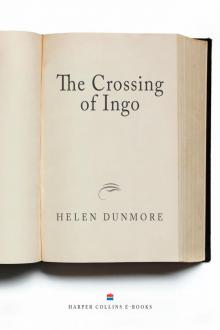 The Crossing of Ingo
The Crossing of Ingo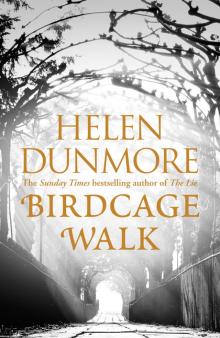 Birdcage Walk
Birdcage Walk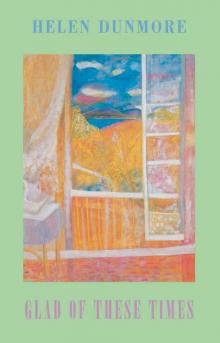 Glad of These Times
Glad of These Times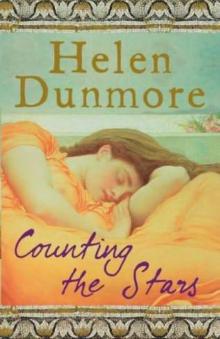 Counting the Stars
Counting the Stars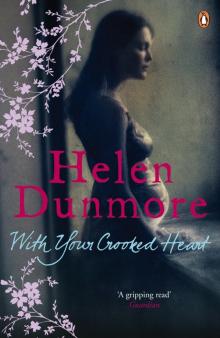 With Your Crooked Heart
With Your Crooked Heart Burning Bright
Burning Bright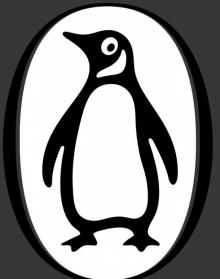 House of Orphans
House of Orphans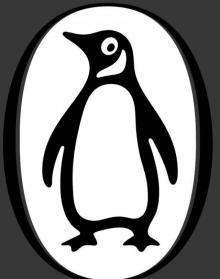 Mourning Ruby
Mourning Ruby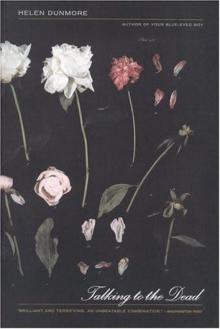 Talking to the Dead
Talking to the Dead Exposure
Exposure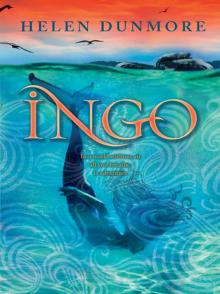 Ingo
Ingo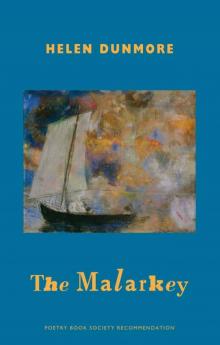 The Malarkey
The Malarkey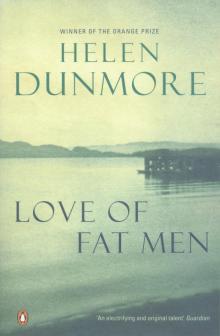 Love of Fat Men
Love of Fat Men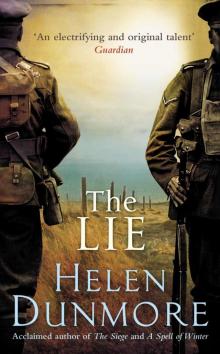 The Lie
The Lie The Siege
The Siege Inside the Wave
Inside the Wave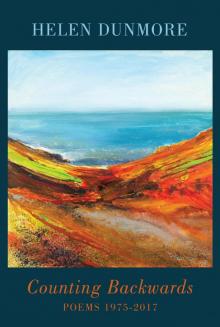 Counting Backwards
Counting Backwards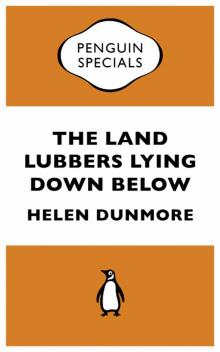 The Land Lubbers Lying Down Below (Penguin Specials)
The Land Lubbers Lying Down Below (Penguin Specials)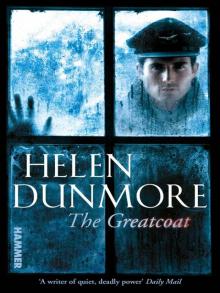 The Greatcoat
The Greatcoat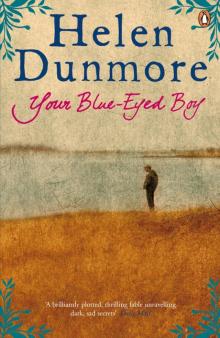 Your Blue Eyed Boy
Your Blue Eyed Boy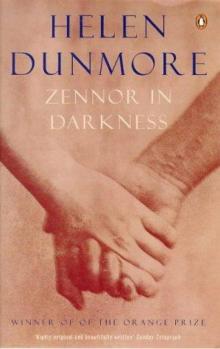 Zennor in Darkness
Zennor in Darkness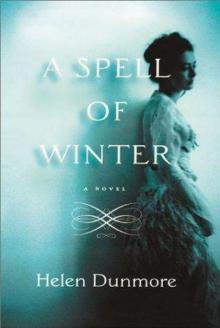 Spell of Winter
Spell of Winter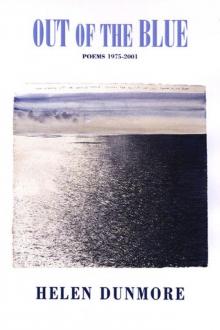 Out of the Blue: Poems 1975-2001
Out of the Blue: Poems 1975-2001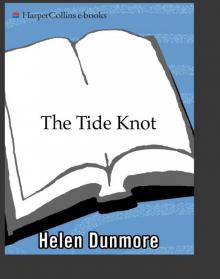 Tide Knot
Tide Knot The Betrayal
The Betrayal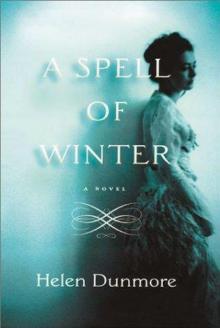 A Spell of Winter
A Spell of Winter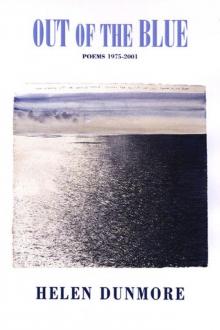 Out of the Blue
Out of the Blue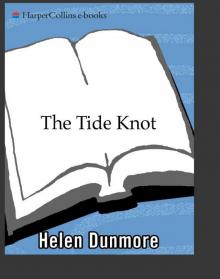 The Tide Knot
The Tide Knot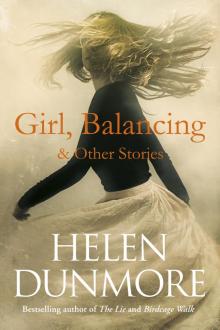 Girl, Balancing & Other Stories
Girl, Balancing & Other Stories Betrayal
Betrayal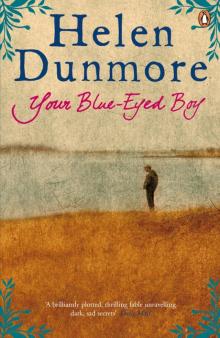 Your Blue-Eyed Boy
Your Blue-Eyed Boy